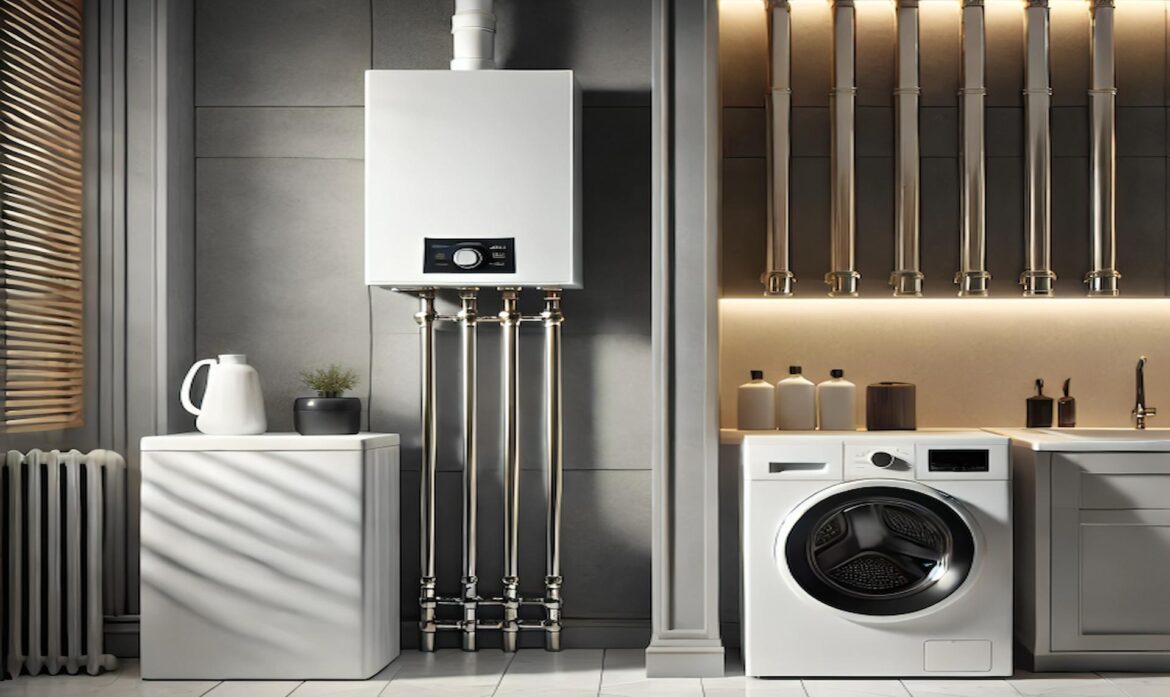Table of Contents
- Introduction to Tankless Water Heaters
- How Tankless Water Heaters Work
- Benefits of Switching to a Tankless Water Heater
- Cost Considerations
- Installation and Maintenance
- Environmental Impact
- Choosing the Right Tankless Water Heater for Your Home
- Conclusion
Introduction to Tankless Water Heaters
Tankless water heaters have become increasingly popular with homeowners looking to reduce energy costs and maximize their living area. Unlike traditional water heaters that maintain hot water reservoirs, tankless models activate and heat water only when you turn on the faucet. This on-demand approach can offer substantial benefits. If you’re in the Denver area, you might want to explore options for a tankless water heater Denver to suit your needs. The charm of a tankless water heater lies in its ability to deliver uninterrupted hot water while occupying minimal space. As you consider making the switch, it’s crucial to delve into these systems’ mechanics, costs, upkeep, and ecological benefits.
How Tankless Water Heaters Work
Grasping the operational mechanics of tankless water heaters is critical to understanding their benefits. These devices feature high-powered burners that heat water as it flows through a heat exchanger. Unlike traditional heaters, which hold heated water in a tank, tankless systems supply hot water continuously. This means you won’t face the dreaded cold shower mid-use. Essentially, the system ramps up instantly whenever you need hot water—whether for a long shower or multiple uses simultaneously—to meet the demand.
Benefits of Switching to a Tankless Water Heater
- Energy Efficiency: One of the standout advantages of tankless water heaters is their energy efficiency. Traditional water heaters continually heat a reservoir, leading to energy waste when not in use. In contrast, tankless models only consume energy when hot water is needed, significantly reducing energy usage. These systems can offer homeowners meaningful savings on their energy bills, which can add up substantially over time.
- Longevity: Do you want to replace your water heater every decade? Tankless systems offer a longer lifespan compared to their traditional counterparts. While traditional units might last 10-15 years, tankless water heaters can quickly run efficiently for over 20 years. This longevity means fewer replacements, translating into cost savings and less waste.
- Space Saving: Another compelling benefit is the space-saving attribute of tankless water heaters. Traditional units often take up significant floor space and require a dedicated area in your home. On the other hand, tankless models are compact and typically wall-mounted. This frees up valuable space that can be utilized for storage or other needs. Imagine switching your water heater to gain a small closet or additional storage space.
Cost Considerations
There is no denying that tankless water heaters have a higher upfront cost when compared to traditional models. However, this initial investment pays off through energy savings and a longer lifespan. According to Energy Saver, Homeowners can save up to hundreds of dollars annually on utility bills when using tankless units. Moreover, the reduced need for replacements and repairs further amplifies these cost benefits. It’s essential to weigh the immediate costs against potential long-term savings to grasp the financial advantage fully.
Installation and Maintenance
Proper installation is crucial for tankless water heaters to function optimally. Due to the advanced technology and specific installation needs, seeking professional help for installation is recommended. A proper setup can lead to inefficiencies and might negate the potential energy savings. Regular maintenance, such as descaling and checking the burners, also ensures the system runs efficiently and prolongs its lifespan. Some models have user-friendly maintenance features, making it easier for homeowners to perform periodic upkeep without professional intervention.
Environmental Impact
Switching to a tankless water heater isn’t just beneficial for your wallet; it’s also a greener choice. Tankless models are more energy efficient, which means they have a smaller carbon footprint. Their efficiency helps reduce greenhouse gas emissions, presenting an eco-friendly alternative to traditional water heaters. Reducing energy consumption translates to fewer coal-fired power plants’ emissions, thus contributing to a cleaner environment. Opting for tankless water heaters in residential settings is a wise choice for environmentally aware homeowners, as it lowers the total carbon emissions.
Choosing the Right Tankless Water Heater for Your Home
Selecting the proper tankless water heater depends on various factors, as they are all different. First, consider the required flow rate, which is determined by the volume of water your household uses simultaneously. Next, decide between electric and gas-powered units. Electric models are typically easier to install but may offer lower flow rates, while gas models usually provide higher flow rates but require proper ventilation. Finally, consider your home’s size and layout and consult with professionals to find the best fit. A tailored approach ensures that the tankless water heater effectively meets your specific needs.
Conclusion
Transitioning to a tankless water heater offers numerous advantages, such as conserving energy, extending lifespan, utilizing space efficiently, and benefiting the environment. Despite the higher initial price, many people find it worth the investment due to its long-term advantages. Seeking guidance from a specialist can help you select the best model for your home if you are considering this improvement. Through thoughtful planning and consideration of various factors, a tankless water heater has the potential to be a beneficial and long-lasting improvement for your household.

